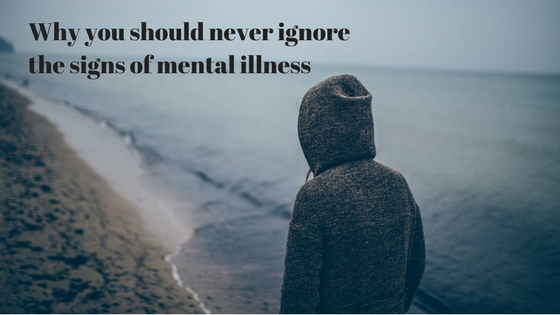Imagine Mental Illness
Take a moment and imagine this scenario. You’re sitting at your job or school, having a normal day. On the outside, everything seems fine. Now imagine that while you are trying to work, thoughts from the past manifest themselves into emotions of sadness, despair, and hallucinations. Mental Illness is taking its toll.
You are trying to be productive, but your desire to finish suddenly disappears and all you can think about is your own thoughts. All of the energy you had is now drained. Your perception of everything has changed. What is real and what is in your head? What does this all mean? Your heart rate increases and your breathing becomes short.“How will I finish this in time? Will I get fired? What will I do with my life?”
You no longer worry about the specific task at hand because your mind is already looking five years from now. You go home and look in the mirror, the image brings you to tears. “What is my purpose? Why am I here?” The ability to get out of bed every morning seems to become more and more difficult. You wonder whether life is even worth living anymore. You are suffering, and no one else can see your pain.
Mental health has been a rising concern for Americans. Despite the increase in prescription drug use for mental illness, there is still a stigma behind its validity. Many are in denial that mental illness is a real issue and will say that people just need to “get over it,” when in reality this approach is impossible. There are also many who are unaware of mental illness’ debilitating effects even though it is more common than cancer, diabetes, or heart disease and effects 1 in 5 Americans. According to the National Alliance on Mental Illness (NAMI), about 43.8 million adults in the U.S. alone experience mental illness in a given year and 1 in 25 Americans suffer from a serious mental illness that impairs their daily life. Even if you have not been diagnosed with a mental illness, you likely know someone who has or still is.
Keep Your Eyes Open
We need to look out for our friends, family, and the people we encounter in our daily lives. Knowing the signs and how to help/assist someone who needs help can be the difference between life and death. The person may seek out substances as a coping mechanism, withdraw from family and friends, speak of hopelessness and loss of will to live, and show signs of anxiety, agitation, and irregular sleeping habits. Do not be afraid to reach out and help someone if you feel that they need it.
Sometimes, there are situations where a person is a greater danger to themselves. So, in order to keep someone who is at risk of self-harm safe, do not leave them alone. Give them a safety contact that is available at all times such as a friend, family member, help line, or mental health professional. It is also important to remember that regardless of the outcome, you did everything you could. Now that we know that mental illness is a pervasive issue, it is important for us to be open and willing to accept that there are individuals who need help. If we can do our part and create awareness to ensure knowledge that mental illness is valid, we can help those struggling to live a more full and happy life.

Don’t be Afraid to Make a Call
Here are some important resources:
If symptoms are shown by a colleague, you are encouraged to interact with them as you would a friend. If you have any questions, please contact:
- National Suicide Prevention Lifeline
- 1-800-273-8255
- NJ Mental Health Cares
- 1-866-202-HELP
- SAMHSA Treatment Referral Helpline (Substance Abuse and Mental Health Services)
- 1‑877‑726‑4727
To learn more about how Easterseals New Jersey can help people with mental illness, please visit our behavioral health services page on our website.
This article was made possible by the information provided by Christine Dante, AVP of Employment Services at Easterseals New Jersey.
About the Author:

Amanda Calderon is a senior at Roger Williams University majoring in Marketing with double minors in Web Development and Graphic Design. She was recently a summer marketing intern for Easterseals New Jersey as well as Aflac. She is passionate about entrepreneurship, social justice, and sports.


Mental illness is a severe problem, and you can’t ignore it. Because experiencing long-term mental health illness can cause a severe problem. Knowledgeable blog. I appreciate it.
Also, check this mental health blog. https://yourmentalhealthpal.com/